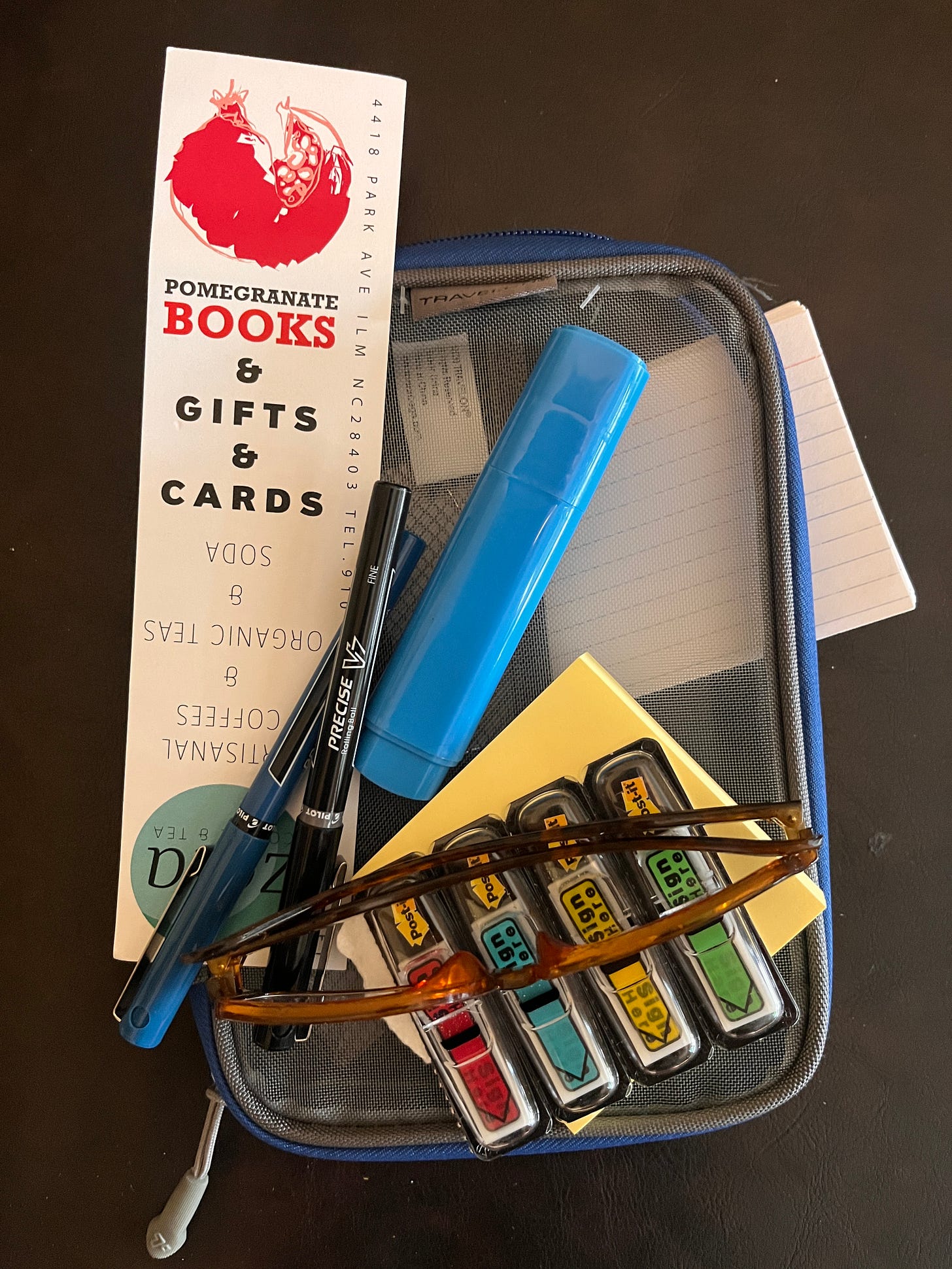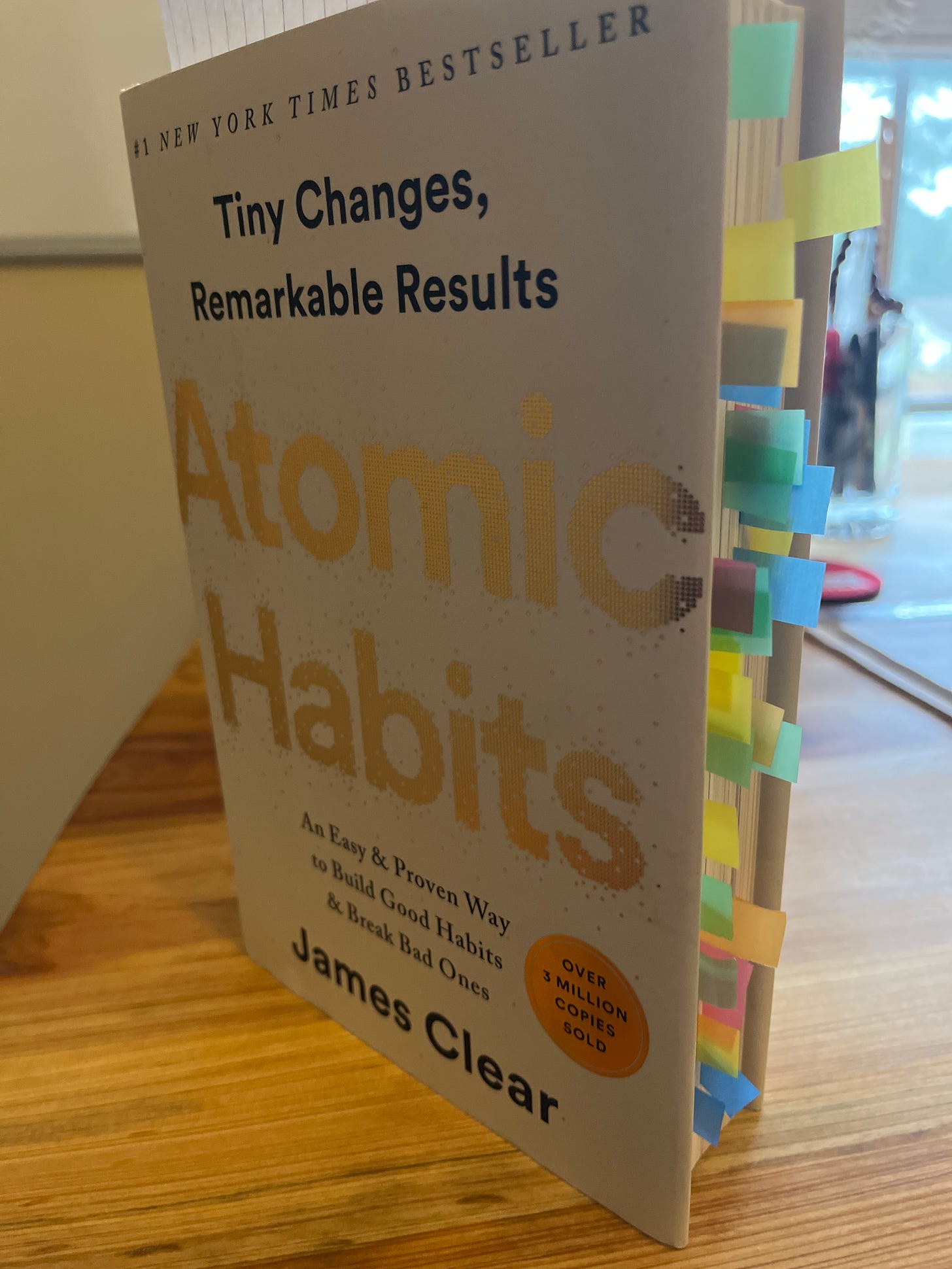Think.
Finally, as promised, it’s time to begin the unveiling of my data management and storage technique which is, as with most inventions, simply a mashup of techniques pioneered by others. In this case, the ‘techniques’ are primarily the Commonplace book and the Zettelkasten that we discussed over the past several weeks, mixed with some of my own eccentricities, of course.
But, before we can get to the storage and recall components, we must start with the knowledge gathering.
We can get smart by reading, listening to books or podcasts, watching tv or movies, and talking to smart people, (actually, you can even get smart by talking to stupid people because, as they say, a broken clock is right twice a day).
The more information we take in and the more open we are to learning new things the better. Take it in, bounce it off the things we already know. The more willing we are to learn, the more we will learn.
I like the idea of the fleeting note from the Zettelkasten method. If you hear something interesting, make a note, write it down, type it into your phone, or ask Siri to record it. Unfortunately, if you have a Southern accent, and talk rapidly like me you wind up with notes that look like this:
While we can take notes on anything, today I’d like to focus on reading. Now, I don’t always follow these steps when reading a novel or even some non-fiction -like a biography. But I often will make a note of a turn of phrase or an idea that comes to mind while reading novels. Especially novels by my buddy David Joy. I am eagerly anticipating the release of his latest book, Those We Thought We Knew. You can preorder it below- and you should.
It is important to note that I grew up in a house where we did not mark in books or dog ear pages- It was considered the 11th commandment and was numbered 11 only because dog-earing was not a problem when the original 10 were carved into stone. This commandment was reinforced by my grandmother who was known for saying, “Books are our friends.”
So, it has taken me most of my life to realize that, while wonderful, books are not our friends. They are employees. They work for us. It is their job to give us their secrets, and if I choose to dogear pages or mark in a book (that I purchased of course) I can, and will. I’m the boss.
It should go without saying, don’t deface (or ban) library books.
When I sit down to read, I make sure to have my reading kit which contains: post-it notes, 3x5 cards, sticky tabs, pens, highlighters, extra reading glasses, and of course a few bookmarks.
I do not dog ear to mark my place. I was raised better than that.
Before I start reading, I flip through the book and mark the last page. Often, especially in a well-researched book the reference list is nearly as long as the text and I like to know where I am. Then I flip through looking for pictures or charts (I like pictures) if I find any, I try to make sense of them to get an idea of how the info will be presented.
Next, I review the book’s layout. I check the table of contents to see how the information will be presented, i.e. sections, chapters, etc. It doesn’t really matter; I just like to know what I’m getting into.
Then, before I begin reading, I spend a few minutes thinking about the book’s topic and asking myself the questions:
What do I know about it?
What don’t I know that I would like to?
What questions do I have?
How is this related to other books I’ve read lately?
Once I begin reading, my system isn’t as refined as I might like it to be. I don’t have color codes or anything. If I come to a word or phrase I don’t know, I circle it. If I can’t get the gist through context clues, I look it up and write the definition in the margins.
If I come across a concept or idea I want to return to, I mark the page with a sticky tab or dog ear it. I highlight or underline quotes I like, and jot notes in the margin. If I need to make more detailed notes I use a Post-it on the page, or if I am fresh out of Post-its, I use a 3x5 card.
“Every book should be read no more slowly than it deserves, and no more quickly than you can read it with satisfaction and comprehension,” —Mortimer J. Adler
When I finish reading for the morning, I spend a few minutes considering what I’ve read and again look for connections to things I know.
I keep harping on connecting new knowledge to preexisting knowledge because it involves executive function skills. You will learn better and remember more.
Then on my drive to work, I try to explain what I’ve read as if I were talking to a fifth grader. This is known as the Feynman technique (More on this another day.)
Just to be clear, there is not an actual fifth-grader in my car at any point.
If I’ve come across a new concept, I try to develop a metaphor for it (I’ll talk more about metaphors on another day. )
I always reserve the right to stop reading a book if I find it boring or to skim until I get to something interesting. I have found that often non-fiction books are longer than they should be by half.
When I’ve finished the book, I like to set it aside and read another before I return to it.
When I do return, I ask myself :
What do I remember?
Next, sit down at my desk with the book and a stack of loose-leaf paper. I flip through the book looking only at the marked pages. Now that I understand the overall concept better, I may not need to collect notes from many of them.
I try to limit my notes to one handwritten page (but this is not a hard rule) using metaphors or diagrams if I can. I separate out titles of other books or papers I want to read and list them all on individual 3x5 cards which should be placed in a zettelkasten but currently litter the top of my desk. I have started a quote database, but am woefully behind in updating it.
Next week we’ll get into what I do with my notes.
P.S. I still haven’t decided what to name my system, and I’m looking for ideas. If you have a suggestion, please leave it below. If I use your idea, I will send you a signed copy of my memoir, Tough Rugged Bastards when it gets released.
P.S.S. If you enjoy Think. Read. Write. Repeat. and would like to support by buying me a beer, click on the link below and you can do just that. Cheers!
Read. (Pre-order) Those We Thought We Knew
by David Joy
This book will not be available until August 1st, but this is a great time for a quick lesson in book sales. Pre-orders count towards an author’s opening day sales, and they mean quite a bit. David is a good friend and one hell of a writer. The link will take you to his local bookstore, City Lights in Sylva, NC. If you order from City Lights you can probably ask them to have him autograph it. If you can’t wait until August, get started on his others: When These Mountains Burn (winner of the 2020 Dashiell Hammett Award), The Line That Held Us (winner of the 2018 Southern Book Prize), The Weight of This World, and Where All Light Tends to Go (Edgar finalist for Best First Novel).
Write.
Today I thought I’d write about the opportunity I had last weekend to help teach a long-range precision shooting course. While I have spent a good portion of my life as a sniper involved in long-range shooting, it has been a while since I’ve taught it.
I can’t believe how much I enjoyed getting back into it. Fortunately, I was assisting current instructors, and much like riding a bike, the nuances of reading wind and making scope adjustments came back quickly.
The course held a great mix of military, and federal law enforcement trainers, and civilians who came out not only to get better at shooting but also to support a phenomenal special operations charity, the Sheepdog Coalition. Their mission is to support former special operations warriors by providing access to outdoor recreation. Check them out and support them if you can.
Repeat.
If we encounter a man of rare intellect, we should ask him what books he reads.– Ralph Waldo Emerson
You can’t buy happiness, but you can buy books and that’s kind of the same thing.– Anonymous
If you only read the books that everyone else is reading, you can only think what everyone else is thinking.– Haruki Murakami
It is what you read when you don’t have to that determines what you will be when you can’t help it.– Oscar Wilde
Thanks for reading. See you next Thursday!
Thanks for reading Think. Read. Write. Repeat!
Share it with a friend, or subscribe for free to receive new posts and support my work.










John,
I am INSANELY jealous of your WPT. And also diving in such an historic area. Another great week of insights. Kipling is always a winner, and Kipling/Buffet is magical. I resist the notion of adherence to a plan, but abhor the notion of changing a plan without valid input to do so. Look forward to next weeks piece.
Your level of discipline is either admirable or frightening, not sure which. I know one thing, when it comes time to kick ass and take names I’m coming to you, since you’ll have all the names in color-coded folders.